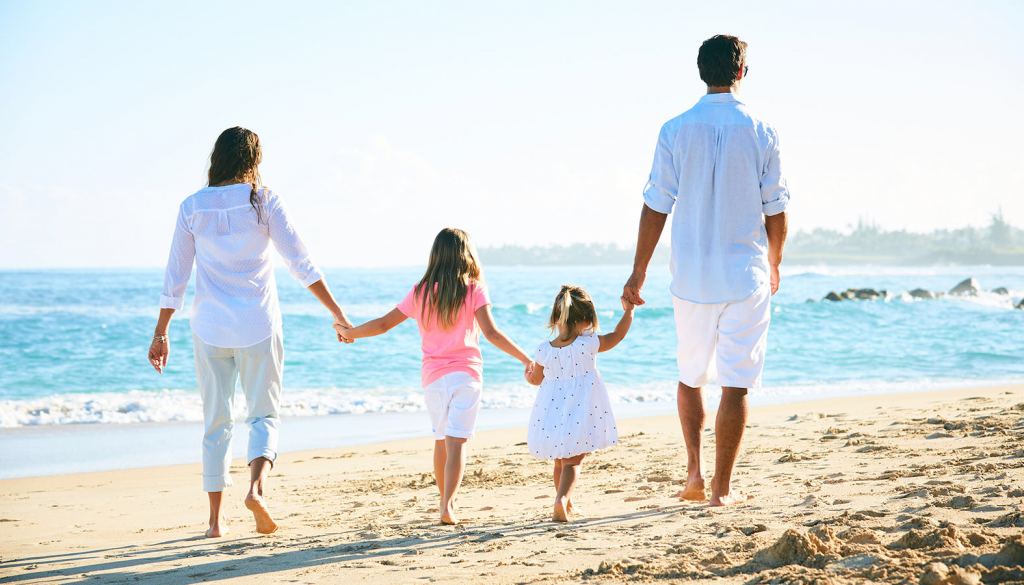California isn’t just the country’s largest economy — it’s its cultural nucleus. Most Americans can trace many features of their daily lives to Tinseltown or Silicon Valley, whether it is utility or leisure that the Pacific state has influenced.
Yet those of us squinting at the gleam of the Golden State from beyond its borders are often reminded by the progressive milestones reached in areas like environmental regulation, end-of-life legislation, and pro-choice policy that California likes to get ahead of itself.
While this may be true, the upper-class Californians who are often publicly advocating for progressive cultural developments such as family-type diversity have also taken the traditional route on the subject of marriage and family, adopting the old-school family and marriage model in private.
That’s the conclusion of a study titled “State of Contradiction: Progressive Family Culture, Traditional Family Structure in California,” released Jan. 14 by the Institute for Family Studies (IFS), based on an original YouGov survey of 2,200 Californians. YouGov is a British international internet-based market research and data analytics firm.
Study authors Brad Wilcox, a professor of sociology at the University of Virginia, and IFS Research Director Wendy Wang discovered that although upper-class Californians may do a lot of talking left, they also live right.
In other words, while college-educated Californians may champion individuality and personal fulfillment, affirming their embrace of family diversity for the public, they don’t practice what they preach at home.
Indeed, in their private family lives, the study finds that college-educated Californians are 20 percentage points more likely to believe that “family diversity should be celebrated” than less educated Californians, but they’re 20 percentage points more likely to be in intact marriages and to believe that it’s very important for them, personally, to be married before having children.
College-educated California parents also were among the least likely to live with a partner without marriage.
The study also showed that cohabiting parents are more likely to have serious doubts about their relationships, leading to lower rates of happiness than married parents and a higher sense that their arrangement is temporary, a prudent consideration made by those who choose to wait until marriage to live with a partner.
The state’s affluent, most notably, have single-parenthood rates of essentially 0%.
The study also found that Asians and immigrants, which make up a significant demographic in California, have the highest rates of intact families, with 80% of Asian families being intact and 70% of foreign-born Californians in intact families.
Seventy-five percent of Asians agreed that it was “very important for me to be married before having children,” compared to 59% of Hispanics, 62% of Whites, and 66% of Blacks. Asians, also more than the other studied populations, agreed at 52% that couples with children should make every effort to stay married.
California is the most populous state in the U.S., and it’s been the vanguard for family change in America, which makes the implications of this study significant, especially in an era in which changing attitudes toward marriage and child-rearing seem to be taking place across the class gamut and across the country.
Although this study focuses exclusively on the Golden State, the authors believe the observations here reflect wider trends, and that what happens in California is almost guaranteed not to stay in California.
In an interview with Angelus News, Wang explained that while California is the engine for liberal family values, these values stand in tension with stable, married family life.
“We find California actually has a higher share of stable, married families than the nation as a whole,” she said. “The affluent in California are smart to know that children after marriage often lead to better family outcomes; that’s why they are more likely to embrace in their own private lives.”
The American pop culture that’s churned out from Hollywood and projected into the rest of the country, tells a different story about California’s elite to the less advantaged and young audiences, which could affect the beliefs of these populations by framing waiting for marriage to have children, for instance, as archaic.
Wang says that the affluent are probably less likely to be influenced by pop culture. “I do believe the progressive values may have a bigger impact on the less advantaged population, especially young adults,” she said. “We don’t have direct data for this, but young adults growing up in poor, non-intact families often lack role models in their lives and they could be easily affected by the pop culture and peer pressure.”
When statistics have consistently revealed a growing marriage social-class gap between the college educated and those who didn’t attend college, a society must grapple with a possible failure along the way that has created such conditions. But it also must be transparent about the successes, something that those who talk left and live right are not doing.
Elites know which choices lead to robust, long-lasting marriages and they rightfully make the choices that are conducive to these ends — such as waiting until marriage to have children and not cohabiting.
These choices aren’t often represented in pop culture or California’s popular political opinion despite them being tried and true recipes for happier, more stable marriages and family lives. The affluent who seek the common good, however, should do so by encouraging others to follow the path that has proven reliable and virtuous.

